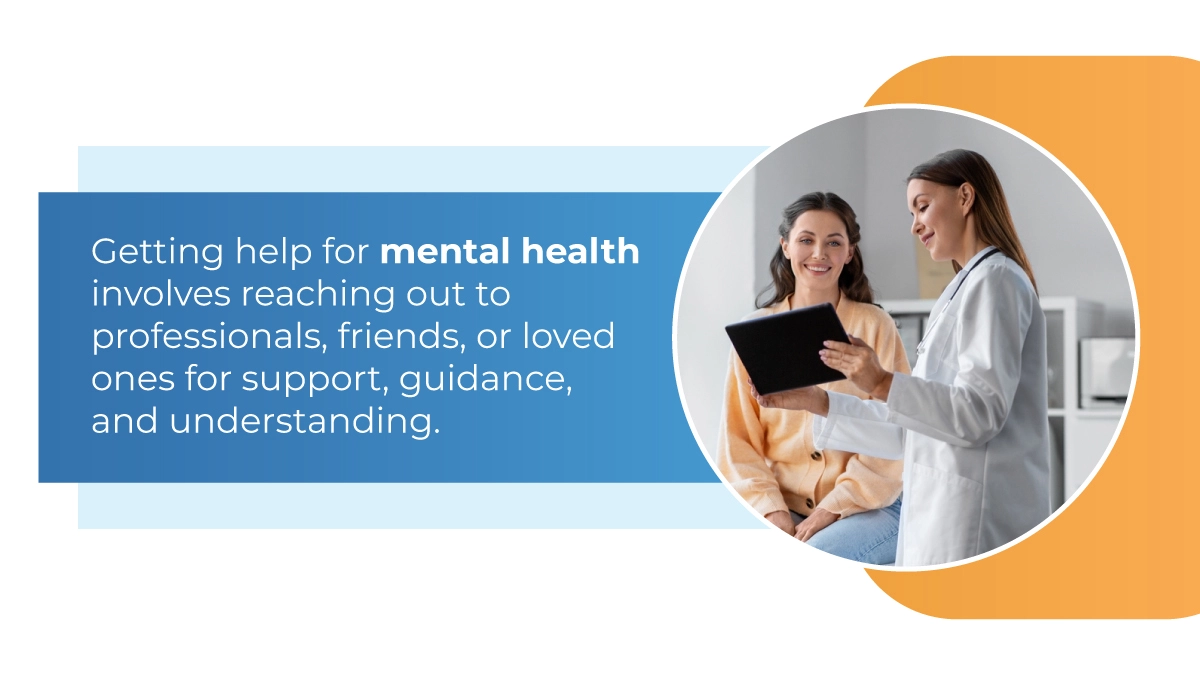Understanding Mental Health: Signs and Solutions
Mental health refers to our emotional, psychological, and social well-being. When our mental health suffers, it can lead to mental health disorders, impacting how we think, feel, and behave. These disorders can vary in severity, affecting our daily functioning and overall quality of life.
Identifying the signs and symptoms of mental health conditions is essential for seeking timely assistance. This article delves into these indicators to help individuals and their loved ones recognize when to seek professional help for mental health concerns. Continue reading!
Key Takeaways
Mental health is vital for overall well-being. Neglecting it can lead to mental health disorders. Here is what you need to know:
- Various types of mental disorders exist that affect individuals regardless of age, gender, or background.
- Mental disorders manifest in the form of various signs that could be physical, psychological, and behavioral.
- Medical treatments and self-care practices can help individuals break free from the grip of mental struggles.
Seek professional mental health care services at The Recovery Team. Contact us at (800) 817-1247 for detailed information.
Common Mental Health Disorders
Mental health disorders affect millions in the United States and can have a significant impact on daily functioning, relationships, and overall well-being. Here are some of the most common mental disorders:
Major Depressive Disorder (MDD)
Persistent sadness, bleakness, and loss of interest or pleasure in activities mark MDD. It can interfere with daily life and lead to physical signs such as fatigue and changes in appetite or sleep patterns.
Anxiety Disorders
Anxiety disorders encompass an array of conditions, including generalized anxiety disorder (GAD), panic disorder, social anxiety disorder, and phobias. These disorders involve excessive worry, fear, or apprehension disproportionate to the situation and can significantly impact daily functioning.
Bipolar Disorder
Bipolar disorder involves extreme mood swings that include periods of mania (elevated mood, increased energy) and depression. These mood episodes can vary in severity and may interfere with work, school, and relationships.
Schizophrenia
Schizophrenia is a chronic and severe mental illness that is marked by disturbances in thinking, emotions, and behavior. Signs may include hallucinations, delusions, disorganized thinking, and impaired social functioning.
Obsessive-Compulsive Disorder (OCD)
OCD is characterized by unwanted intrusive thoughts (obsessions) and repetitive behaviors or rituals (compulsions) aimed at reducing anxiety or preventing perceived harm. These behaviors can be time-consuming and interfere with daily activities.
Post-Traumatic Stress Disorder (PTSD)
PTSD can arise after undergoing or witnessing a traumatic event such as military combat, natural disasters, or sexual assault. Symptoms may include intrusive memories, flashbacks, nightmares, hypervigilance, and avoidance of reminders of the trauma.
Attention-Deficit/Hyperactivity Disorder (ADHD)
ADHD, a neurodevelopmental disorder, is characterized by difficulties with attention, hyperactivity, and impulsivity. Symptoms often appear in childhood and can persist into adulthood, affecting academic, occupational, and social functioning.
Borderline Personality Disorder (BPD)
BPD is characterized by unstable mood, self-image, and relationships. Individuals with BPD may experience intense fear of abandonment, impulsivity, and difficulty regulating emotions.
Substance Use Disorders (SUDs)
SUDs involve the misuse of alcohol, drugs, or other substances, leading to significant impairment or distress. These disorders can contribute to physical, psychological, and social problems.
Recognizing the symptoms of a specific mental health condition you are struggling with is the first step toward seeking appropriate treatment and support.
When to Seek Support for Mental Health Issues
Knowing when to seek help for mental health problems is crucial for maintaining overall well-being. Here are the common signs indicating it might be time to reach out for professional support:
Physical Symptoms
When our bodies start acting differently, it could be a sign that something’s up with our mental health.
- Persistent headaches or migraines
- Chronic fatigue or low energy levels
- Changes in appetite or weight, whether significant increase or decrease
- Sleep disturbances, such as insomnia or oversleeping
- Unexplained aches and pains that persist despite medical evaluation
- Recurrent gastrointestinal problems, like stomach aches or digestive issues
Psychological Symptoms
Sometimes, our thoughts and feelings can give us clues about what’s happening inside our heads.
- Persistent feelings of sadness, hopelessness, or emptiness
- Intense mood swings or emotional outbursts that disrupt daily life
- Difficulty concentrating or making decisions
- Racing or intrusive thoughts that are difficult to control
- Heightened anxiety, panic attacks, or feelings of impending doom
- Persistent feelings of worthlessness or guilt
- Loss of interest in previously enjoyable activities
- Thoughts of suicide or self-harm.
Behavioral Symptoms
How we act can tell us much about our feelings, and attention to those clues is important.
- Social withdrawal or isolation from close friends and family members
- Substance abuse or excessive alcohol consumption
- Irritability, agitation, or hostility towards others
- Avoidance of responsibilities, such as work or school
- Engaging in risky behaviors or acting impulsively
- Difficulty maintaining relationships or forming new connections
- Changes in daily routines or habits, such as neglecting personal hygiene
- Experiencing hallucinations or delusions
If you or your family member is experiencing any of these symptoms to the degree that interferes with daily functioning or causes profound emotional distress, it’s vital to seek help from a mental health professional.
Mental Health Treatment Options
Seeking treatment for mental health concerns is essential to improving well-being and quality of life. Various treatment options are available, including:
Psychotherapy (Talk Therapy)
Psychotherapy involves meeting with a trained therapist to discuss thoughts, feelings, and behaviors. Different therapeutic approaches, like cognitive-behavioral therapy (CBT), dialectical behavior therapy (DBT), and interpersonal therapy (IPT), can help individuals manage symptoms and develop coping strategies.
Medication
Medications, such as antidepressants, anti-anxiety drugs, mood stabilizers, and antipsychotics, can be prescribed to alleviate symptoms of mental health conditions. Working closely with professionals, such as medical doctors, nurses, or counselors, to find the right medicine and dosage for each individual is essential.
Newer Treatments
Advancements in mental health treatment have led to innovative approaches, including transcranial magnetic stimulation (TMS), ketamine therapy, and deep brain stimulation (DBS). These treatments may be considered for individuals who have not responded to traditional interventions.
Alternative Therapies
Alternative therapies, like acupuncture, yoga, meditation, and art therapy, can complement traditional treatment approaches. These methods focus on holistic well-being and may help reduce stress and improve mood.
Support Groups
Support groups offer a safe, non-judgmental space for individuals to share experiences, receive encouragement and emotional support, and learn from others facing similar challenges. Peer support can help lessen the feelings of isolation and stigma associated with mental illness.
Lifestyle Changes
Making lifestyle changes can positively impact mental health. These positive changes include improving sleep habits, exercising regularly, eating a well-balanced diet, reducing stress, and avoiding alcohol and drugs. These simple yet effective strategies can complement formal treatment approaches.
By exploring these treatment options and working collaboratively with healthcare providers, individuals can find the support they need to manage mental health troubles and lead fulfilling lives.
Resources Available for Mental Health Support
In the United States, there are several resources available for mental health support:
- National Suicide Prevention Lifeline: Call 1-800-273-TALK (8255) for immediate support.
- Crisis Text Line: Text “HOME” to 741741 to connect with a trained crisis counselor. Available 24/7.
- SAMHSA Helpline: Call 1-800-662-HELP (4357) for substance abuse and mental health crisis support.
- Mental Health America (MHA): MHA provides resources, information, and advocacy for mental health issues.
- Employee Assistance Programs (EAP): Utilize employer-provided confidential support services
- Support Groups: Connect with others facing similar challenges through the National Alliance on Mental Illness (NAMI).
- Health Insurance Providers: Check coverage for therapy, counseling, and psychiatric care under your health insurance plan.
Remember, finding the right support that works for you is essential. Don’t hesitate to reach out for help if you or someone you know is struggling with mental health issues.






